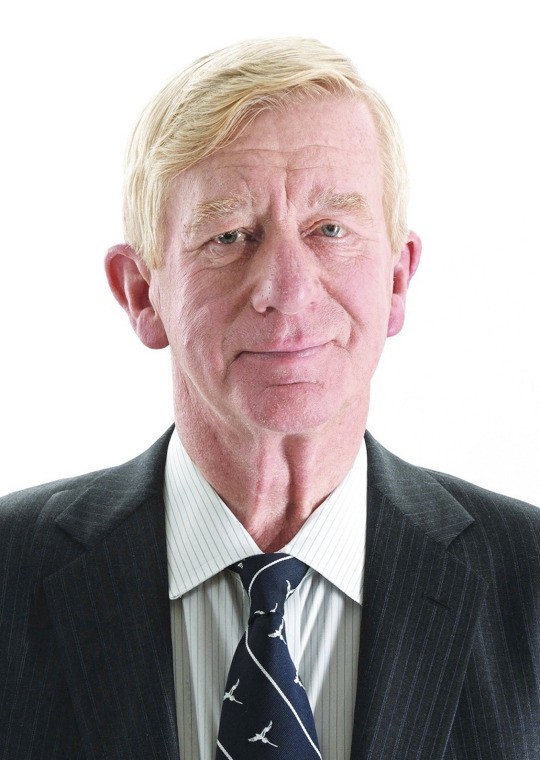Election 2016 Fact Sheet: Libertarian VP

Name: William Floyd “Bill” Weld
Date of Birth: July 31, 1945
- Harvard University — A.B., Classics (Class of 1966)
- University College, Oxford — Diploma, International Economics (Class of 1967)
- Harvard Law School — LL.D. (Class of 1970)
Party:
- Republican (Before 2016)
- Libertarian (2016-Present)
Positions Held
- Governor, Massachusetts (1991–1997)
- Assistant Attorney General for the Criminal Division, United States Department of Justice (1986–1988)
- United States Attorney, United States District Court for the District of Massachusetts (1981–1986)
Policy Positions
- Abortion — “I happen to think that individual freedom should extend to a woman’s right to choose. I want the government out of your pocketbook and your bedroom.” Similar to his running mate, the former Massachusetts governor is pro-choice, a position he has publicly maintained for decades. In fact, a 1997 opinion piece from the Republican National Coalition For Life was written against his nomination for Ambassador to Mexico partially on this basis. He has expressed that government involvement in ensuring clinic access is “guarding a fundamental constitutional right of the individual.” He previously advocated for the establishment of pro-choice laws at the state level in the event Roe v. Wade was overturned.
- Gun control — The Harvard Law alumnus was a previous supporter of strong gun control laws, but has recently amended his position to fight against them. Despite pushing for a 1993 assault weapons ban, Weld describes the gun control measures he supported in Massachusetts as “modest”, and himself as “a lifelong hunter and gun owner.”
- Drugs — Governor Weld is against treating substance abuse cases as criminal cases, classifying them as “a public health emergency”. He does, however, support tightening the distribution of opioid prescriptions and pain medication. He is not in support of drug legalization, but has previously supported both medical marijuana and needle-exchange programs. Conversely, he has previously made braggadocious statements of prosecuting “drug thugs” as part of the Reagan Administration.
- Education — While little has been stated publicly by the former U.S. Attorney, he signed the Massachusetts Education Reform Act of 1993 into law, suggesting he supports common core curriculum at the state level. The Act contained many provisions, such as the role school administrators played, how to handle under-performing schools, and the establishment of charter schools. This falls in line with Johnson’s positions on schools needing to be more competitive with one another as the two of them are opposed to federal education standards.
- Health care — The vice-presidential nominee has expressed that “health savings accounts were a good idea”. He has also expressed the idea of allowing citizens to access coverage across state lines, advocating for a more competitive health care system. As Massachusetts governor he relaxed Medicaid eligibility rules after receiving federal funding, resulting in an expansion from 670,000 applications in 1995 to over one million by 2001.
- Immigration — In a 2013 joint editorial in the Boston Globe with fellow attorney Susan J. Cohen, the former governor advocates for immigration reform, considering the 11 million undocumented workers to be in a disadvantaged state of “de facto legalization” without the advantages of actual citizenship. He is against a “probationary legal status” on the basis of opposing the legal creation of “second-class citizens”. He supports increasing the cap on H-1B visas in attempts to keep foreign graduates living and working in the U.S., and that our current laws see us “literally educating our competition, at the expense of US innovation and exports.”
- LGBTQ+ Rights — The former Assistant Attorney General has long been a supporter of marriage equality. Similar to his running mate, Weld supported the reversal of proposition 8 in California. He believes that marriage equality is protected by the Constitution and that the government is obligated to protect everyone’s Constitutional rights.
- Environment — Weld signed the Massachusetts Rivers Protection Act of 1996, a law that restricted land use alongside state rivers. He also pushed the EPA to require electric car manufacturing in 1994, following similar regulation in California, and he supported EPA regulation placing “stricter limits on smog” in 1997. However, his position has seemingly evolved as noted on the campaign website: he and Governor Johnson believe that competition will protect the environment rather than strict regulation.
- Social Security — The Oxford scholar has little to say on social security other than that he does not wish to eliminate it since he “just started receiving it”.
- Tax Reform — The former Republican differs from his running mate in that he supports cutting taxes but does not wish to abolish the IRS. During a CNN Town Hall (June 22, 2016), he established that he “cut taxes 21 times, never raised them”; he had cut taxes 15 times by the time he debated John Kerry for the Senate in October 1996, asserting that said cuts “aggregate more than a billion dollars”.



